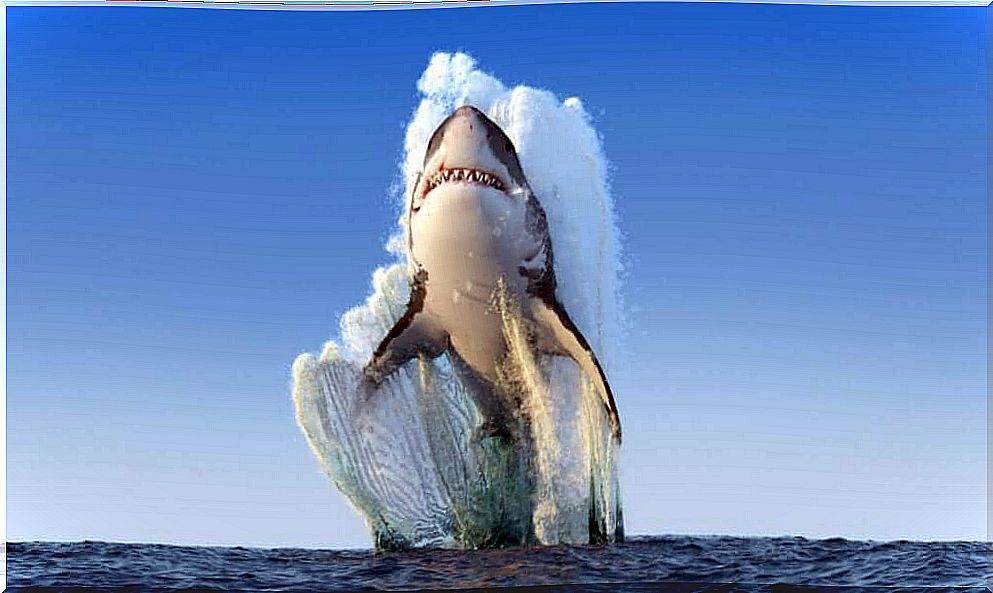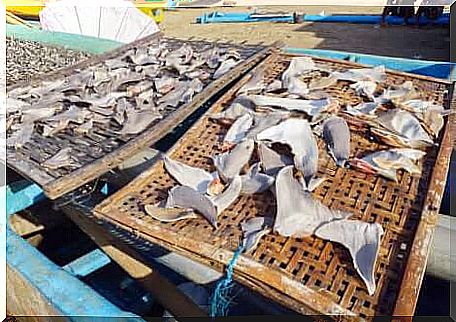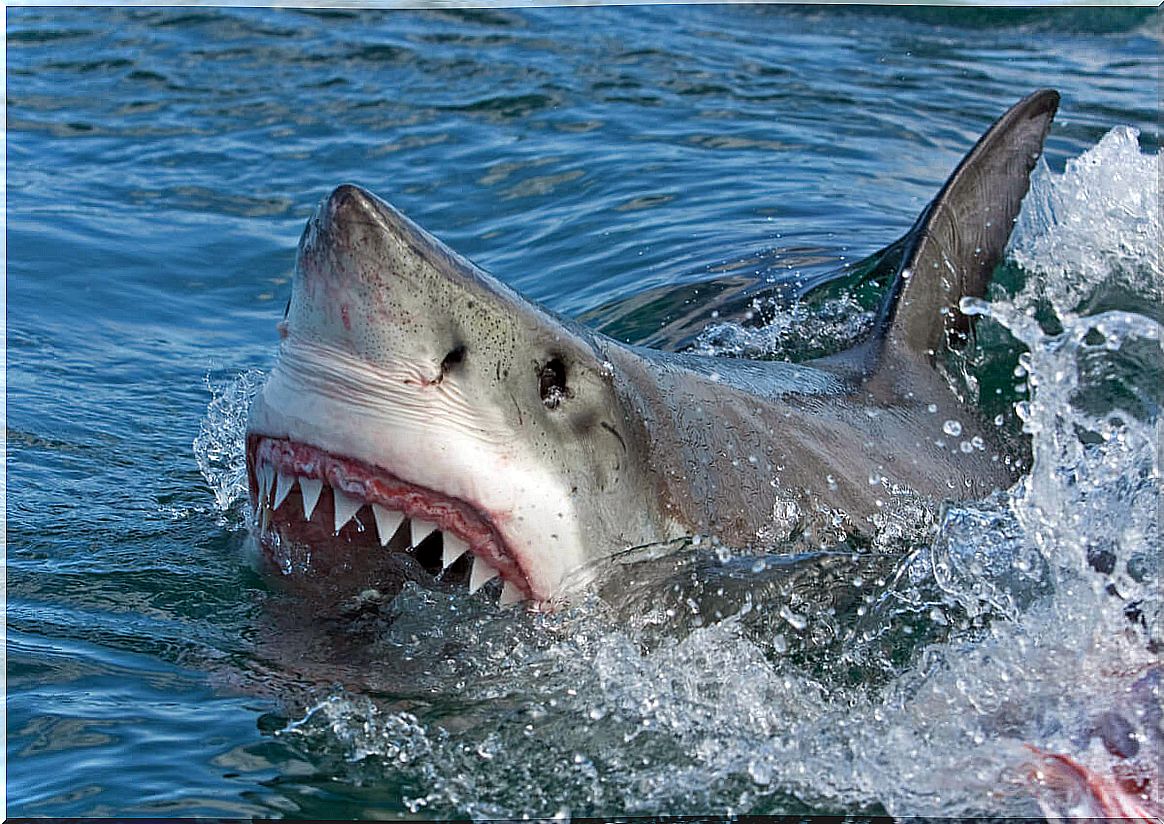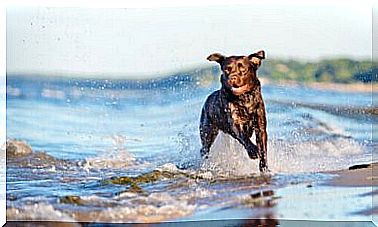Is It True That Sharks Don’t Get Sick?

There are many reasons to be fascinated by these animals. However, the belief that sharks don’t get sick is not on the list. To appreciate these marine titans, we must know better their incredible biology.
First of all, we must know that sharks have been in this world since long before the Age of Dinosaurs. In fact, its evolutionary record dates back to about 450 million years ago. Therefore, these creatures have adaptations that allowed them to survive where many other species could not.
One of their most striking features, which they share with their relatives, the stingrays, is the fact that they have no bones in their bodies. Their skeletons are made entirely of cartilage. Furthermore, a shark can produce more than 30,000 teeth in its lifetime. So when a tooth wears out, it falls out and is replaced by one from the back rows.
The idea that sharks don’t get sick is a myth.
The myth that sharks don’t get sick is fed on social media, as it is common to read that these are the only animals that never get sick or that they are even immune to all known diseases, including cancer.
In the early 1990s, an unscientific book that “revealed” how shark cartilage could save cancer patients became famous. Although the document did not claim that sharks never got cancer, it did argue the rare occurrence of solid tumors in them.
The Alleged Miraculous Properties of Using Shark Cartilage Against Cancer
To understand these arguments, one must first understand the concept of angiogenesis. This word refers to the process by which new blood vessels develop on from the vasculature already present. Thus, angiogenesis is the formation of new capillaries in tissues.
On the other hand, angiogenesis is common in many types of tumors and is associated with tumor growth. Furthermore, there are no blood vessels in the cartilage, meaning it is avascular.
The development of malignant tumors involving the cartilage is only very rarely seen. For these reasons, the alternative products market considers cartilage a source of antiangiogenic compounds.

Science disproves the myth that sharks don’t get sick
Contrary to popular belief, the fact that sharks have various diseases is unquestionable. Without a doubt, scientific reports have already registered the incidence of cancer in sharks, including chondromas (cartilage cancer).
So far, tumors have been documented in at least 23 species of sharks. Case reports are likely to increase as research directed at cancer in sharks grows.
Importantly, although cartilage may have antiangiogenic properties, its effectiveness as a treatment has not been proven. In other words, the oral ingestion of powdered shark cartilage does not have preventive effects against the appearance of cancerous tumors.
Shark cartilage is not a therapy for cancer
It is worth noting that a compound called Neovastat, extracted from shark cartilage, was evaluated in combination with chemotherapy in a phase III clinical trial for lung cancer. However, after more than six years of follow-up, the trial was terminated because of lack of therapeutic efficacy.
This was the same fate as the phase II clinical trial for refractory renal cell carcinoma. The same happened in studies of patients with breast and colon cancer.
In none of these studies was there an improvement in overall survival. Despite the negative results against cancer, the market is now trying to link sharks to the treatment of diseases such as psoriasis.
The importance of sharks to the marine ecosystem
According to a 2013 study, humans kill about 100 million sharks each year. It is worth noting that the overfishing of these animals occurs because of the demand for their meat, liver oil, cartilage and valuable fins. Often, the fin is cut from live sharks to be used as ingredient of shark fin soup, an ancient and valuable Asian delicacy.
Importantly, the depletion of shark populations is of concern because, as they are top predators, they help balance ecosystems in the world’s oceans. If we don’t have enough of these predators, there will be cascading changes in the ecosystem, even affecting marine plants.
Gradually, organizations such as the Convention on the International Trade in Endangered Species of Wild Fauna and Flora (CITES) increase the list of shark species with commercial protection. However, these initiatives may come too late.
Shark reproduction is varied and complex.
Depending on the species, sharks can reproduce in three ways:
- Oviparity: lay eggs and deposit them in a safe place for hatching.
- Viviparity: live sharks are born directly.
- Ovoviviparity: they carry the young in egg sacs that hatch in the uterus, developing in the mother’s body and being born as live sharks. It’s a combination of the first two strategies.
In addition, the duration of gestation varies according to the species of shark, and can be from 5 to 42 months. In addition, the litter can have between two (viviparous) and 100 (oviparous) pups. The main consequence of the very long gestation periods is that vulnerable shark species recover very slowly in numerical terms.

conservation and knowledge
Society is a mechanism that can dictate the pattern of behavior of a patient, the type of treatment he seeks and which one is ultimately adopted. Therefore, it is necessary to consider that false social beliefs create insurmountable obstacles.
It is important to keep in mind that the information we obtain through the internet and the print media is for the most part unregulated and can present extreme views that exacerbate existing problems. Undoubtedly, the trade in materials from sharks to fight cancer is a clear example of human ignorance.









